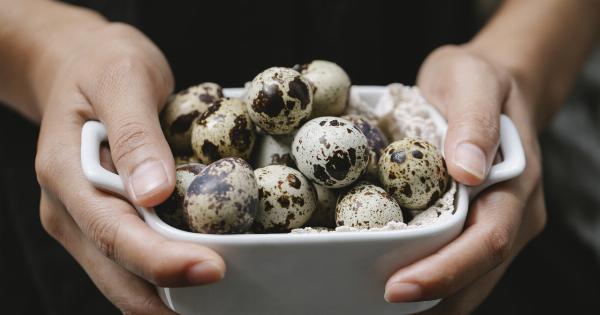When it comes to weight loss and muscle gain, high-protein diets have become one of the trendiest diets out there. From bodybuilders to fitness enthusiasts to celebrities, everyone seems to be advocating for it.
The idea behind a high-protein diet is simple – increase your protein intake and maximize protein synthesis in the body. This leads to quicker muscle recovery, better muscle hypertrophy, and ultimately, a leaner physique.
However, while high-protein diets may seem like a miracle solution for achieving your fitness goals, it’s important to note that they come with their own set of risks – particularly for women.
The Risks of High-Protein Diets for Women
1. Kidney Problems
One of the most commonly cited risks of high-protein diets is the strain it puts on the kidneys. The kidneys play a crucial role in filtering out waste from the blood, including excess nitrogen.
When you consume more protein than your body needs, it increases the nitrogen load on your kidneys, making them work harder than usual. Over time, this can lead to kidney dysfunction.
However, it’s important to note that this is a concern mainly for individuals with pre-existing kidney conditions. For healthy women, consuming high amounts of protein generally does not lead to kidney problems.
2. Dehydration
Protein-rich foods are typically low in water content, and when you consume a high-protein diet, you may be more prone to dehydration.
Protein metabolism requires water, so if you’re not drinking enough fluids, your body may start drawing water from other sources, including the kidneys. This can lead to kidney problems and other health issues.
3. Nutrient Imbalances
When you consume high amounts of protein, you’re likely to cut back on other food groups, such as fruits, vegetables, and carbohydrates. This can lead to nutrient imbalances, which can cause a range of health problems over time.
In particular, women may be at risk of iron deficiency when following a high-protein diet. Iron is a key nutrient for women as they tend to lose it through menstruation.
Protein-rich foods such as meat and eggs are low in iron, so it’s important to ensure that you’re consuming other sources of iron, such as leafy green vegetables and fortified cereals.
4. Rapid Weight Gain
While a high-protein diet can be effective for weight loss, it can also lead to rapid weight gain if not balanced with other food groups.
Women who consume high amounts of protein may be at risk of gaining weight due to the high calorie content of many protein-rich foods. Additionally, protein-rich foods tend to be higher in fat, which can also contribute to weight gain.
5. Tiredness and Fatigue
When you consume high amounts of protein, your body may struggle to metabolize it all, leading to feelings of tiredness and fatigue. This is because the body needs to work harder to process protein, which can lead to a lack of energy and motivation.
This can be particularly problematic for women who lead busy lifestyles or have demanding careers.
The Bottom Line
While high-protein diets can offer a range of benefits for women looking to lose weight or gain muscle, it’s important to be aware of the risks associated with this dietary approach.
Women who follow a high-protein diet should also be mindful of other food groups to ensure that they are getting all the nutrients their body needs. To avoid dehydration, women should ensure they are drinking enough fluids and paying attention to their body’s thirst signals.
Ultimately, a well-rounded diet that includes a variety of nutrient-dense foods is always the best approach to achieve optimal health.



























